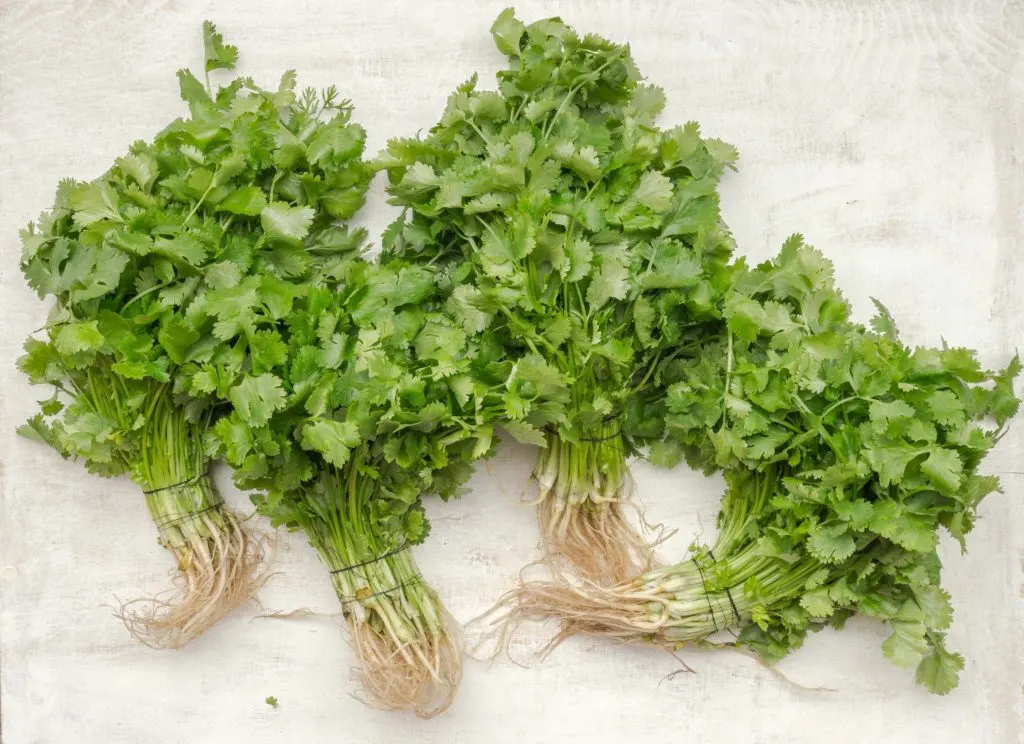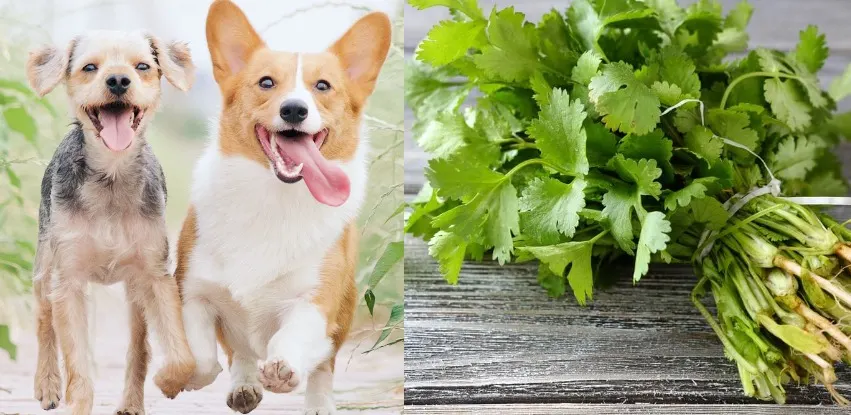Cilantro is not only a herb from the fresh leaves of the coriander plant. Oh no, it’s actually the most controversial herb that ever existed. Well, I might be exaggerating a little bit. But you understand what I mean. Now, as a dog owner, I always wondered is cilantro bad for dogs?
You probably already know why I said that cilantro is super controversial. It’s because people either love cilantro or they hate it. There is no in-between! The reason for this being is that for some cilantro actually tastes like soap! This is in fact a genetic issue! Yes, it’s true!
ALSO READ Can dogs eat arugula? Is it safe for pooches?
People who say that cilantro tastes like soap have a variation in a group of olfactory-receptor genes that allows them to strongly perceive the soapy-flavored aldehydes in cilantro leaves.
But what about dogs? Should and more importantly should dogs eat cilantro? Another question we’re going to answer is whether cilantro has any benefits on your dog’s health!
Before we begin, you can learn more about other human foods and if they are safe for dogs through the following articles:
- What Vegetables Can Dogs Eat?
- What fruits can dogs eat and which are toxic?
- Which Food Is Good Or Bad For Dogs?
Is cilantro bad for dogs?
So, can dogs eat cilantro? The answer is yes! Your dog can eat cilantro. In fact, this herb is actually very healthy for your canine.

Cilantro contains vitamin A, C, potassium, zinc, and other essential minerals that are good for your dog.
ALSO READ Can Dogs Eat Black Pepper? All You Need To Know
This herb can actually also help with an upset stomach and ease digestion problems! You can definitely add it sometimes to your dog’s food!
But, let’s take a closer look at all the nutrients that can be found in cilantro.
Before you give your dog cilantro keep in mind that moderation is key. It’s a fact that cilantro, precisely even in small doses can improve canine’s health and help with stomach problems.
ALSO READ When To Switch Puppy To 2 Meals A Day?
However, too much of it, or feeding it too often can be counterproductive. Too much cilantro won’t be more effective, but it will actually lead to stomach upset and stomach problems in general.
Health benefits of cilantro
Cilantro has many health-related and practical benefits for your dog and its overall well-being. As mentioned above, it’s rich in different vitamins and minerals such as:
- Vitamin C, which is amazing for your dog’s bones and prevents blood clotting.
- Calcium, which is great for healthy bones and teeth.
- Magnesium, which is vital for metabolism regulation and neurotransmission.
- Iron, which is great for oxygen movement and development of red blood cells.
ALSO READ Can dogs eat olives? What you should know
- Improving your dog’s breath
If your dog’s breath smells a little funny, then cilantro is the solution! But, besides this, cilantro does something more important! This herb can actually help with preventing gum infections as well as freshening his breath.
- Relieves digestive problems
Cilantro has been used in traditional medicine since ancient times to help ease various digestive problems, such as upset stomach. Just a little bit of this herb can help your dog with gas and any digestive and stomach issues in general.
ALSO READ Is celery good for dogs? Here’s the truth
- Great for vision and skin
Because cilantro is a great source of vitamin A it’s not only a great antioxidant and powerful in fighting infections. Cilantro and the vitamin A that can be found in it is also very important for your dog’s vision and it even helps keep its skin and fur healthy.
Conclusion
In conclusion, the answer to the question is cilantro bad for dogs is definitely no! Cilantro is very healthy for dogs and your dog can definitely consume it.
However, despite all of the vitamins and minerals that can be found in cilantro, please don’t make it your dog’s only source of beneficial nutrients.
ALSO READ How to Correctly Read a Dog Food Label
You should never rely on human food to provide your dog with vitamins, minerals, and other important nutrients in general. That’s why it’s important to buy high-quality, veterinarian-approved dog food.

